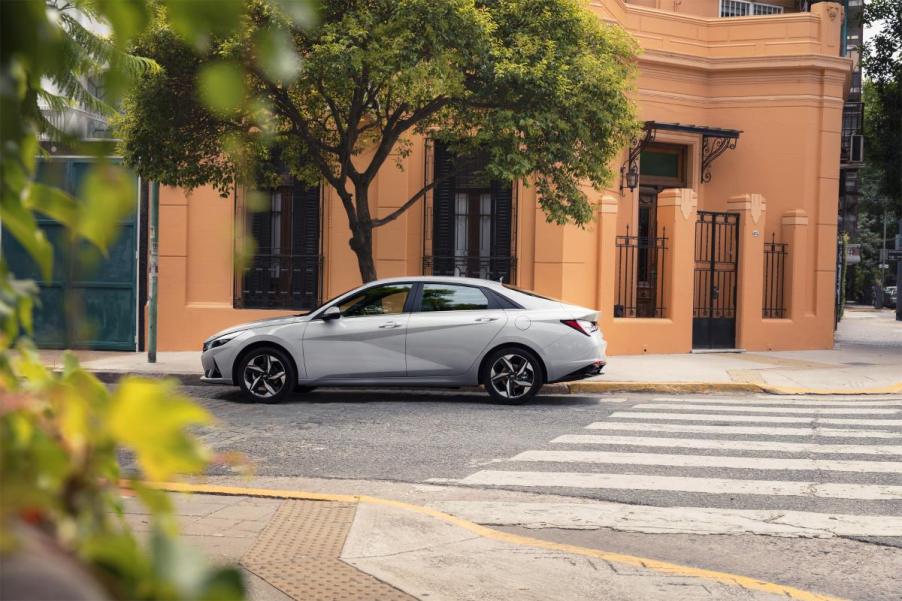
Is the Base Engine In the 2023 Hyundai Elantra Really That Bad?
The 2023 Hyundai Elantra is one of the least expensive compact sedans on sale. With thrilling styling, impressive standard features, and charming ride quality, it’s more than enough for most potential buyers. While the Korean four-door enjoys raving reviews, many fault its lackluster base engine. Is it something potential buyers should ignore, or is it really that bad?
2023 Hyundai Elantra performance
The top-spec of the five Elantra trim levels—SE, SEL, Limited, N Line, and N—features a turbocharged 2.0-liter four-cylinder. With 276 horsepower, it’s much more potent than the N Line’s 201-horsepower 1.6-liter turbo-four. However, the SE, SEL, and Limited feature the less-than-stellar non-turbo 2.0-liter.
Drivers will only have 147 horsepower and 132 pounds-feet of torque at their disposal. The anemic strength is excellent for fuel economy, however. The EPA estimates 33 mpg in the city and 42 mpg on the highway, placing it near the top of the segment. Nevertheless, Car and Driver calls the powerplant “breathless,” and many others lament the woeful power supply.
It’s the same engine found in the mechanically-similar Kia Rio. Some may think that since the Elantra is much bigger than the Rio, it’ll be much slower. Although the Elantra is two feet longer, it’s only two pounds heavier. So, both have near-identical, near-10-second 0-60 mph times.
How is it in everyday conditions?

The 2023 Hyundai Elantra’s “tepid acceleration,” as Edmunds calls it, probably won’t be noticeable in urban settings. When setting off from the traffic lights, its continuously variable automatic transmission will run through the gears without frantically revving the engine. After all, the six-speed manual is only offered in the range-topping N variant.
On the other hand, highway driving is where folks may see the 2023 Hyundai Elantra struggle. Maximum torque comes at 4,500 rpm, so the 2.0-liter may make the cabin buzzier than average. Moreover, passing other motorists will be a challenge. The 5.5 seconds it takes to accelerate from 50-70 mph will be limiting.
Are Hyundai 2.0 engines reliable?
Just two years ago, Hyundai recalled over 125,000 vehicles with the 2.0-liter four-pot. With improperly heat-treated piston rings, Consumer Reports said the Elantra had an increased risk of seizing and stalling. If the problem remained unchecked, oil could seep out of the engine onto hot exhaust components, potentially causing a fire.
In 2023, there aren’t particularly noticeable mechanical issues for the Elantra 2.0-liter. Owners may experience a noisier engine than competitor cars may have, but it’s normal for the engine design. The four-cylinder will likely last into the 150,000-180,000-mile range, but regular maintenance is required. If owners notice excessive vibrations, it’s usually fixed by replacing ignition system components, like coils, plugs, and wires.
The 2023 Hyundai Elantra base engine isn’t terrible. While many bemoan its relative slowness, not everyone screeches tires around a track on their way to work. The 2.0-liter may cause slight annoyance on the highway or under heavy load, but it’s unlikely to ruin one’s day. Also, there’s not a whole lot that can dissuade eager shoppers from some of the best fuel economy figures in the sedan segment.


